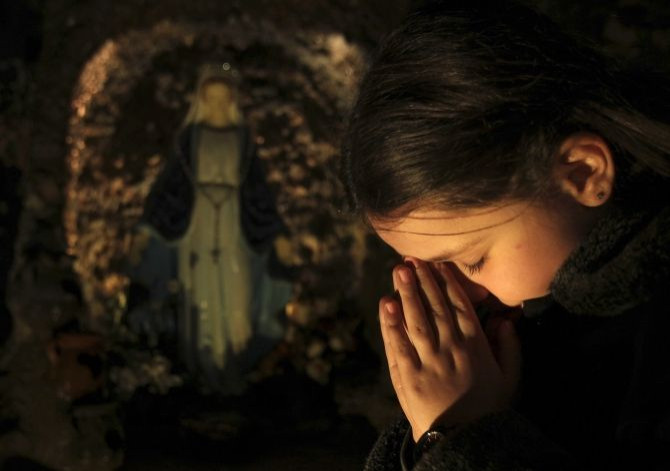Death Enhances One's Religious Belief as well as the Rejection of Other Religions

Death can have a profound effect on a person's religious beliefs. In a new study, death not only strengthened a person's religious beliefs but also increased the denial of other religions.
One popular belief about the role of religion is to help manage how people deal with death. Religion could help people be aware of death but also be comforted in knowing there is something more after death, easing any potential fears. When confronted with death, those who believed in a religion had their beliefs as well as their faith in a higher power enhanced.
The underlying principle behind this idea about religion is based on the Terror Management Theory (TMT). In TMT, human behavior is based on the fear of death and certain parts of society are based on people dealing with death. Using TMT, there is a belief called the worldview defense hypothesis, that our held beliefs will guide and shape a person's religiosity and belief in a higher power. The worldview defense could be anything from being an atheist, being religious, being intolerant or embracing cultural diversity.
To test the TMT theory, three studies, led by Kenneth E. Vail III from the University of Missouri-Columbia, were conducted to explore a person's religious beliefs when confronted with death. The students filled out questionnaires and some of the participants were reminded about death while others were given a control topic. When filling out a questionnaire, students were asked about their faith, belief in a higher power and the belief in another religion's god.
The first study was conducted with 54 college students who were either Christian or Atheist. The Christian students believed in an afterlife while Atheists rejected it. When reminded about death, Christian students had their religious beliefs enhanced; their belief in a higher power as well as God/Jesus was also enhanced. Atheists had no change in religiosity or belief in a higher power when reminded of death.
The same held true for the second study which featured 40 Iranian Muslims. When reminded of death, Muslim faith was enhanced as was their belief in a higher power as well as Allah. For the third study, featuring 28 Agnostic students, death enhanced their religiosity, belief in a higher power as well as their belief in Jesus/God, Allah and Buddha.
In the Christian and Muslim students, while belief in their own religion and their higher power was enhanced, their denial of another's god was also enhanced. The Christian students, who were reminded of death, had enhanced denial of Allah and Buddha. The same was true for Muslim students who had enhanced denial of God/Jesus and Buddha.
Future research could explore how death plays a role in polytheistic religions like Hinduism and Buddhism. Researchers can also look at a system like Confucianism to see what role death plays in their beliefs.
The study was published in the Personality and Social Psychology Bulletin.



























